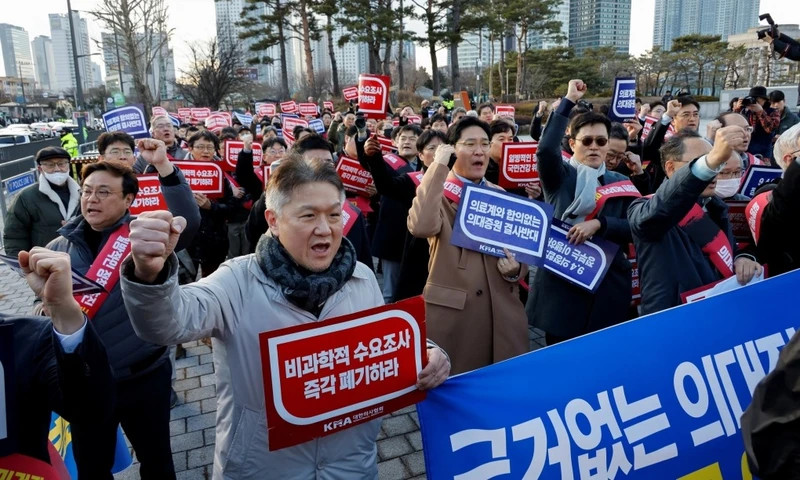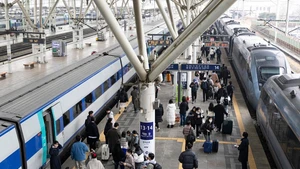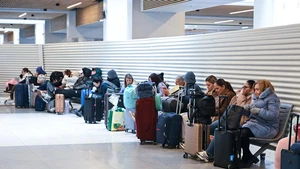According to data from the Organization for Economic Cooperation and Development (OECD), the ratio of doctors to population in the RoK is only 2.6 doctors/1,000 people, much lower than the average of 3.7 in OECD member countries.
Worryingly, the RoK is witnessing a significant decline in the amount doctors in essential fields such as surgery, obstetrics, gynaecology and paediatrics. Many hospitals in urban or rural areas often face a shortage of doctors, forcing people to travel long distances for medical examination and treatment.
The RoK Ministry of Health and Welfare said that by 2035, the country will lack about 15,000 doctors. Health and Welfare Minister Cho Kyoo-hong emphasised that if the staffing gap is not filled soon, the health system will not be able to meet the increasing demand for health care due to the rapidly ageing population and can even fall into a passive situation if serious epidemics like COVID-19 appear.
To relieve the pressure on human resources for the medical industry, the RoK Government has recently announced a decision to increase the medical school admission quota by 2,000 for the 2025 university entrance exam to 5,058 people, an increase of 65.4% of this year's enrollment target. This is the first time the RoK has increased its medical school enrollment target since 1998. Analysts said the decision to promote doctor training is necessary and appropriate given the scarcity of human resources at hospitals in rural areas. The above quota is not high compared to many countries around the world.
According to Yonhap, in the UK, a country with a population similar to the RoK, the medical school enrollment target was 8,639 people in 2020. Germany and Japan both have about 9,400 medical students and are making efforts to increase that number in the near future.
Many people have also sided with the government. According to a recent Gallup survey, about 76% of respondents support increasing medical school admission quotas.
The mass resignation of intern doctors has threatened to lead to a serious crisis in people's healthcare activities in the “Land of Kimchi.” Experts hoped that the Government and medical staff would soon find a common voice, ensuring that the medical system would operate normally again.
However, the decision to increase medical enrollment quotas has faced fierce opposition from many doctors. About 10,000 intern doctors, equivalent to more than 80% of intern doctors nationwide, simultaneously submitted their resignations. They said that increasing enrollment could cause redundancies, while many medical staff do not receive adequate compensation.
A report by the Korea Institute for Health and Social Affairs, with data as of 2020, showed a significant income gap among doctors in this country. Accordingly, doctors in ophthalmology, neurosurgery and dermatology have twice the income of paediatricians. The report also showed disparities in doctors' salaries depending on the size of the medical facility.
The strike wave lasted for the second consecutive week, causing the medical system to fall into overload, with service disruptions in many areas, especially at some higher-level general hospitals.
When the number of doctors quitting their jobs reached tens of thousands, the responsibility of caring for the sick fell heavily on the shoulders of the remaining medical staff. In that context, the RoK introduced many regulatory measures to minimise stress on the health sector, such as temporarily allowing hospitals to deploy remote treatment services, extending the working hours of public hospitals, and strengthening the force of military doctors for hospitals overloaded due to a lack of manpower.
The government has called on doctors to return to work and affirmed that it will make efforts to ensure rights and a more favourable and safer working environment for medical staff. The government also took tough measures by warning that it would suspend the practice licenses of doctors who do not return to work. However, to date, the majority of interns still refuse requests to return to work.
The mass resignation of intern doctors has threatened to lead to a serious crisis in people's healthcare activities in the “Land of Kimchi.” Experts hoped that the Government and medical staff would soon find a common voice, ensuring that the medical system would operate normally again.
















